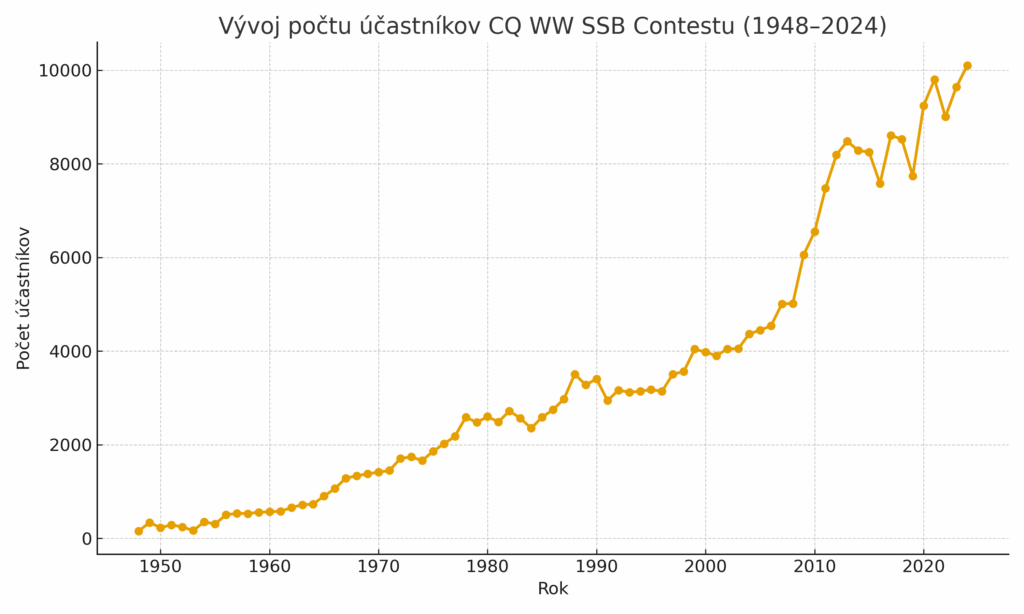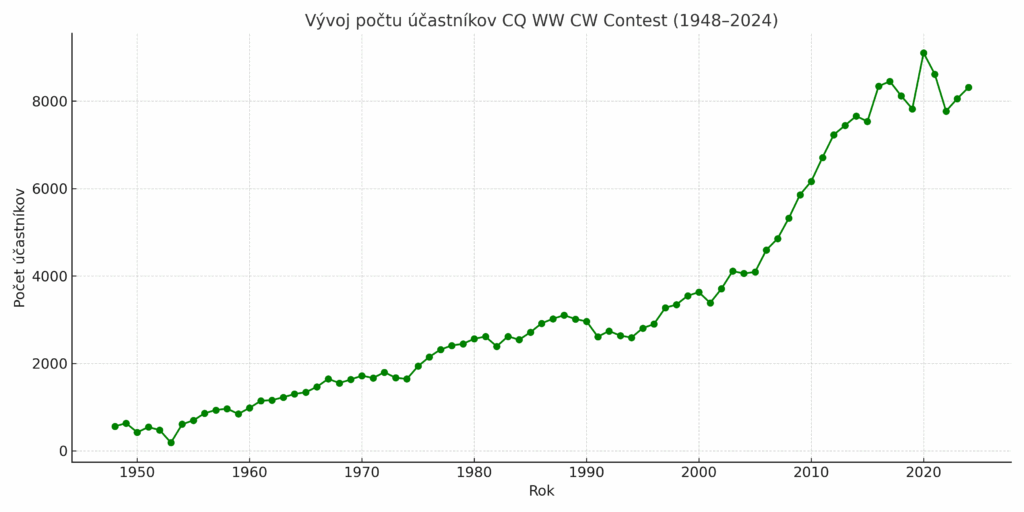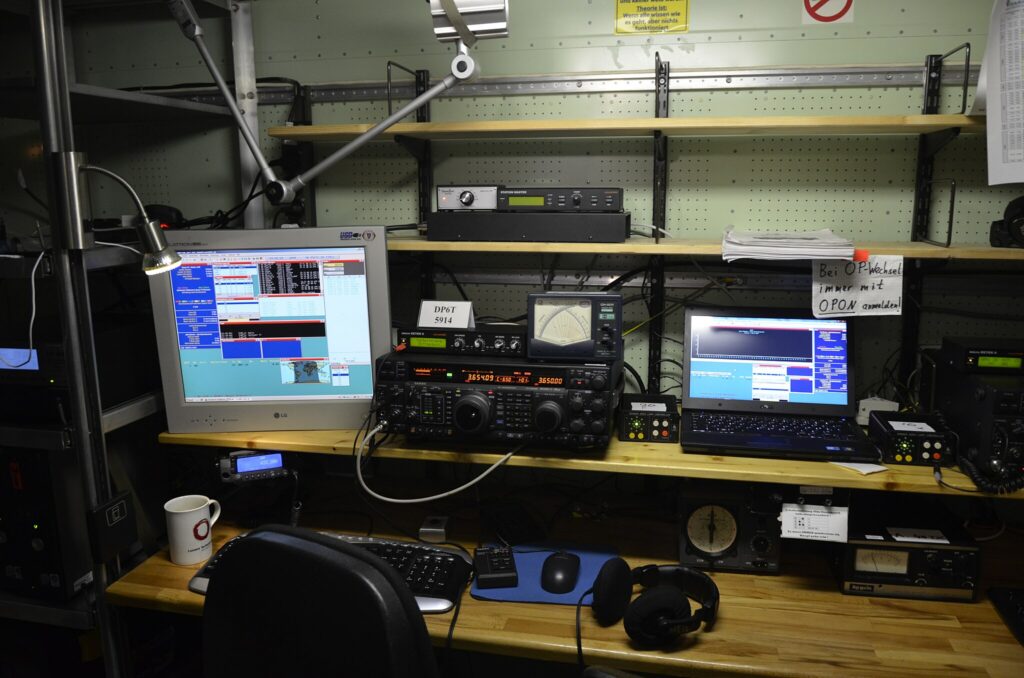CQ The World Wide DX Contest (CQ WW) is one of the most famous and massive amateur contests in the world. Its roots go back to the pre-World War II era - to publications like Pacific Radio News, Radio a R/9 - and through the original idea of dividing the world into zones (WAZ), the idea of a global 'DX marathon' gradually emerged. This early stage significantly shaped the mapping of zones and the ambitions of early competitors.
The predecessor of modern CQ WW was the World-Wide Contest, organized in 1939 by the radio magazine environment in the USA. The first event attracted more than two hundred stations, but subsequent years were interrupted by war. After the end of the conflict and the founding of the magazine CQ the idea of international competition was revived - in 1948, a contest under the name 'CQ's World-Wide DX Contest' took place, with contest formats (CW and Phone), categories, and rules quickly evolving. This renewal laid the foundation for what CQ WW is today.

The success of CQ WW lies in a combination of a simple concept and a strong tradition: competitors earn points for QSO and multipliers for areas (zones) and prefixes, which promotes international operation and the 'hunt' for rare regions. In the early post-war years, the rules expanded - separate categories were added for single operator, multi-operator stations, and later single-band competition - making the contest accessible to a wide range of participants.

Over the decades, CQ WW has seen not only an increase in the number of participants but also technical expertise and the intensity of competition grow. Small local groups have evolved into professional contest teams with multiple operating masters, advanced antenna technology, and sophisticated log processing software. The contest has also followed changes in band usage - for example, gradual inclination towards 10, 15, and 20 meters depending on conditions - and has responded with rule updates to ensure fairness and transparency of results.

Competition results and archives of CQ WW represent a valuable historical material: they record the growth of global connections, the boom of the amateur community, and also technological changes — from tape recordings to digital logs and online verification. Today, CQ WW is not just a competition; it is an annual global ham radio holiday that brings together thousands of operators of all levels, from local enthusiasts to professional teams, and provides opportunities for learning, experimenting, and friendly competition.


Why does CQ WW endure? Because it combines simple playability with deep strategic content: which bands are open, where are rare zones, how to plan antenna rotation, and when to hit 'rush hour' — all of this turns the weekend into a tumultuous but cooperative game. And although technologies and rules progress, the essence remains the same: to connect with others and confirm that the signal has traveled hundreds or thousands of kilometers. CQ WW remains an icon of the ham-contesting scene — historically rich, dynamic, and constantly evolving tradition.
